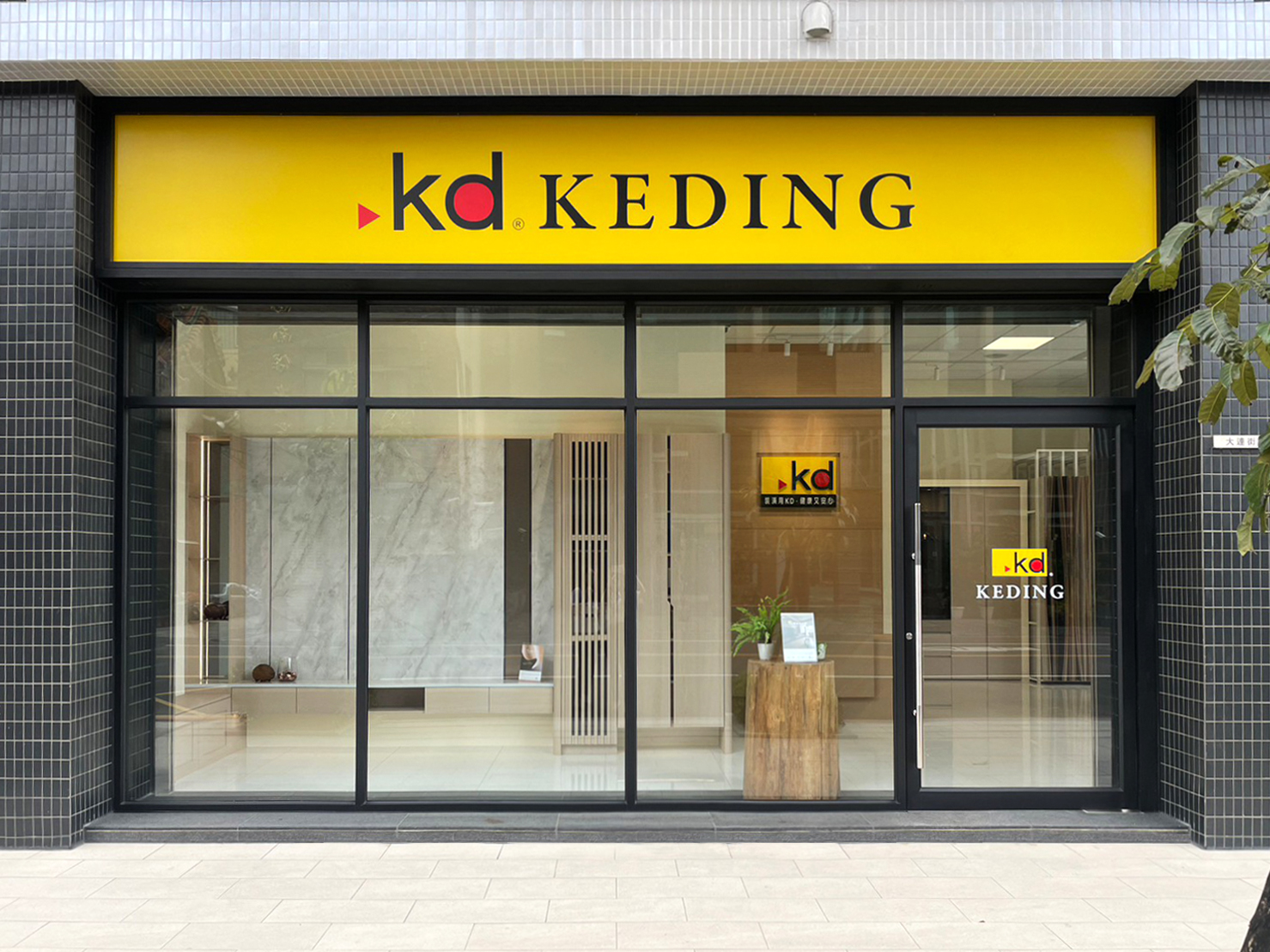Table of Contents
Overview of the Building Material Business
The building materials industry encompasses the production and distribution of materials used in construction, such as cement, steel, and glass. In 2022, the U.S. construction materials market was valued at USD 146.8 billion and is projected to grow at a CAGR of 3.7% during the forecast period. Globally, the market was valued at USD 1.5 trillion in 2022, with expectations to reach USD 2 trillion by 2034, driven by infrastructure development and urbanization.
The building materials industry is a great business opportunity, with steady growth both locally and globally due to more construction and urban growth. But starting a building materials business can feel overwhelming, with tasks like finding reliable suppliers and dealing with rules and regulations.
This guide breaks things down and gives you practical tips to help your business succeed. Whether you’re new to the industry or looking to grow, this resource will help you confidently navigate how to start a building material supply business and thrive in this competitive market.
How to Start Selling Building Materials: 9 Essential Steps
Starting a building materials business requires careful planning and execution. Here are detailed steps to guide you through the process:
Conduct Market Research
Market research is key to building a successful materials business. It helps you understand product demand, spot market gaps, and stay updated on trends like sustainable construction. With these insights, you can meet the needs of your target audience—whether contractors, DIY enthusiasts, or large developers—while standing out from competitors.
Start by evaluating local demand for key building materials, including decorative laminates, wood veneers, cement, steel, tiles, and eco-friendly options like bamboo or recycled materials. Use trusted resources like Nelson Market Research Reports or IBISWorld for comprehensive industry data. To get a real sense of the market, visit construction sites, chat with contractors about who they like to buy from, and check out what your competitors are offering—like their prices, product variety, and customer service. This will give you both a broad and close-up view of the market, helping you figure out the best direction for your business right from the start.
Create a Business Plan
A business plan is your roadmap, outlining your goals, operations, and financial expectations. It helps clarify your vision, align your team, and build trust with potential investors or lenders. It also prepares you to anticipate risks and handle challenges more effectively.
A business plan should have clear, actionable sections that include every aspect of your business. Below is a template tailored to a building materials business:
|
Secure Reliable Suppliers
A reliable supply chain is crucial for meeting customer demands consistently. Quality materials build trust with clients and prevent delays that could damage your reputation. Plus, dependable suppliers often offer better pricing and terms, which can boost your profitability.
Attending trade fairs and supplier expos to meet potential partners in person is a great way to find trustworthy suppliers. You can take the chance to assess their products. Moreover, use supplier directories like Kompass or connect with local trade organizations to find reputable manufacturers. Building a long-term relationship with suppliers through consistent communication and timely payments can also result in priority service or exclusive deals.
Pick the Right Location
The location of your building materials business is key to its success. A good location makes it easier for customers to reach you, reduces logistics issues, and boosts efficiency. Being close to construction sites or industrial areas can increase visibility, attract more customers, and cut transportation costs.
Make sure the property has enough space for storing inventory, handling materials, and customer parking. A warehouse with high ceilings and strong floors is best for heavy items like cement or steel. Easy access to major roads or highways is also important for smooth deliveries. Avoid locations with heavy traffic or hard navigation, as they can cause delays.
Before you make a final decision, visit potential sites during busy hours to check traffic and accessibility. If you’re targeting urban contractors, choose a location near residential projects. For large-scale suppliers, an industrial hub might be better. Use online platforms or local brokers to compare properties and find the right fit.
Ensure Regulatory Requirements
Following regulations is important to keep your business legal and avoid problems. Start by identifying the rules that apply to your business, like building codes, environmental laws, and safety standards, especially for materials such as cement or chemicals, and interior materials such as wall panels or laminates.
Get the necessary permits, such as eco-certifications or approvals for storing hazardous materials. Set up internal policies for compliance, like proper labeling, safe storage, and waste disposal. Also, provide regular training to make sure your team follows these rules.
Stay updated on any changes by subscribing to industry news or regulatory alerts. Workshops and seminars can also help you understand new standards. To make things easier, consider hiring a compliance consultant and keeping your records organized. This will make audits and inspections smoother and reduce disruptions to your business.
Get a Business License
A business license is essential to legally operate and establish credibility with customers and suppliers. It demonstrates that your building materials business complies with local regulations, taxes, and industry standards, minimizing the risk of fines or legal complications.
You must select the right business structure as it impacts your legal responsibilities, taxes, and liability. Here is the breakdown of different business structures:
- Sole Proprietorship: Simple and low-cost, suitable for small-scale businesses, but the owner assumes full liability for debts.
- Partnership: Shared ownership and profits, with personal liability unless structured as an LLP.
- LLC: Combines liability protection with flexible taxes, ideal for balancing simplicity and risk management.
- Corporation: Best for large businesses seeking capital, offering strong liability protection but requiring more paperwork and, in C-Corps, double taxation.
- Cooperative: Member-owned with profit sharing, suitable for community-focused ventures but rare in this industry.
In our case, LLCs often offer a balance of liability protection and simplicity, which is the most suitable choice. You also need to register for a trade license, GST or VAT number (depending on your location), and any industry-specific permits.
Most applications can be done through your local government’s online portal. Finally, you’ll need to apply for an Employer Identification Number (EIN) from the tax authority for tax filing and to hire employees.
As there are many regulations and paperwork involved, to save time and ensure accuracy, it is recommended to use platforms like LegalZoom or work with a local business advisor. Keep digital copies of all licenses and permits for easy reference and renewal.
Organize Transport for Business
Efficient logistics are crucial for a building materials business, ensuring on-time deliveries, minimizing delays, and keeping customers happy. Start by evaluating your transportation needs—smaller vehicles like vans work well for city deliveries, while bulk orders need larger trucks.
To save costs, partner with third-party logistics providers and negotiate based on delivery volume and frequency. As your business grows, think about expanding your fleet or forming long-term partnerships with trusted transport companies. Planning for growth will help keep operations smooth and meet rising demand.
Bring in Technology for Operations
Using technology in your building materials business can make things run more smoothly, reduce mistakes, and improve efficiency. It helps you keep track of inventory, manage customers easily, and make smarter decisions. These changes will lead to happier customers and help your business grow.
Customer relationship management (CRM) tools organize customer information and make it easier to personalize your service. Inventory management systems track stock, reorder automatically, and reduce waste. Accounting software ensures your finances are accurate, while feedback tools help you improve service quality.
Focus on using cloud-based solutions that can grow with your business, and train your team to use them well. This will make your business more flexible and give you an edge over competitors as you expand.
Manage the Finances
Good financial management is key to growing and sustaining your business. By tracking your income and expenses, you can better understand spending habits, measure profits, and make tax preparation easier.
Keeping clear records helps you stay in control of your finances and make smarter decisions. If you want to grow, consider getting funding through loans, credit lines, or grants, supported by a strong financial plan to attract investors or lenders.
Opening a separate business bank account keeps your personal and business finances separate, making everything clearer and simplifying taxes. Solid financial practices set a strong foundation for long-term success.
How to Grow Your Building Material Business?
Expanding a building materials business requires a smart strategy to attract new customers and keep the ones you already have. By using digital tools and understanding customer needs, you can scale your operations effectively. Here are some proven ways to help your business grow and stay competitive.
To learn more strategies and details for how to sell building materials, see our full article.
Strengthen Online Presence
Building a strong online presence helps increase visibility and reach a larger audience. Start by creating a professional website that showcases your products, services, and contact details to engage potential clients. Make sure it’s optimized for SEO so your business shows up when contractors or DIYers search for materials.
Social media platforms like LinkedIn and Instagram are great for connecting with professionals and showcasing your projects. You might also want to add e-commerce to let customers browse your inventory and place orders online. Lastly, keep your website updated with new products and promotions to stay fresh and relevant.
Build Customer Relationships
Strong customer relationships lead to loyalty and repeat business. Provide great customer service, respond quickly to inquiries, and deliver on time. Offer loyalty programs, discounts, or personalized recommendations to make customers feel valued.
Check in regularly with customers to ensure they’re satisfied and address any concerns right away. Use CRM software to track interactions and preferences, so you can offer solutions that are tailored to their needs.
Attend Industry Events
Participating in trade shows, expos, and local industry events can expand your network and boost your reputation. These events are excellent platforms to showcase your products, meet potential clients, and learn about emerging trends.
Set up an eye-catching booth and offer samples or discounts to attract visitors. Don’t forget to prepare promotional materials like brochures, pamphlets, and business cards to leave a lasting impression on attendees.
Diversify Your Products
Expanding your product range helps you reach a wider audience and boost revenue. Consider adding eco-friendly options, specialized tools, or premium materials to meet different customer needs.
Keep an eye on market trends and customer feedback to spot gaps in your offerings. Partnering with suppliers who offer unique products can help set your business apart from competitors and attract niche customers.
Predict Customers Needs
Understanding and anticipating customer needs makes your business a trusted partner. Stay updated on industry trends, like the rising demand for sustainable construction materials.
Use data analytics to track customer buying patterns and predict demand for certain products. Keep communication open with clients to learn about their upcoming projects, so you can adjust your inventory to meet their needs.
How Much Will It Cost to Start a Building Material Business?
Starting a building material business involves various costs that depend on the scale and location of your operations. Here is our breakdown:
- Retail/Warehouse Space Acquisition ($50,000 – $500,000): Renting or buying a space is often one of the largest expenses. Warehouses with ample storage are crucial for bulk materials.
- Inventory Procurement ($20,000 – $200,000): Stocking essential materials like cement, tiles, and steel requires significant upfront investment. Bulk purchasing can reduce per-unit costs.
- Website Development and E-commerce Platform ($5,000 – $50,000): A professional website with e-commerce capabilities is vital for attracting online customers.
- Branding and Marketing Campaign ($10,000 – $100,000): Developing a brand identity, running ads, and building an online presence are necessary to establish market visibility.
- Delivery Fleet and Transportation Setup ($30,000 – $300,000): Depending on your delivery model, you may need trucks or partner with logistics providers.
- Licensing, Permits, and Compliance ($5,000 – $50,000): Obtaining the necessary business licenses and meeting regulatory standards ensures legal operations.
- Staffing and Training ($20,000 – $200,000): Hiring skilled staff and training them on product knowledge and customer service adds value to your operations.
- Showroom and Displays ($10,000 – $100,000): If you plan to include a showroom, additional investment in shelving, signage, and product samples is required.
- Accounting and Financial Systems ($5,000 – $50,000): Tools for managing finances and inventory streamline operations and ensure compliance.
In total, startup costs range from $155,000 to $1,550,000, depending on factors like location, scale, and business model.
Become a Distributor at Keding: Start Your Building Material Business Now
Starting a building materials business requires thorough planning and effective marketing. By focusing on strategic steps above like market research, securing licenses, and leveraging technology, you can build a solid foundation for your business.
By combining these strategies with efforts to grow your business—such as enhancing your online presence and diversifying your product offerings—you’ll be well-positioned to thrive in this competitive industry. Finally, don’t forget the importance of partnering with reliable suppliers can take your business to the next level with ease.
Join forces with KEDING, a top Brand and global leader in high-quality, eco-friendly laminates for residential, commercial, and hospitality interiors. As an exclusive distributor, you’ll enjoy unmatched market opportunities, higher profits, and the prestige of representing a globally trusted brand. With our robust support system—including free marketing tools, expert training, CRM systems, after-sales assistance, and real-time inventory allocation—we set you up for success from day one. Whether supplying premium materials or completing large-scale projects, KEDING ensures reliability and growth.
Take the first step now—contact us to schedule a consultation and discover how to become an authorized distributor!








